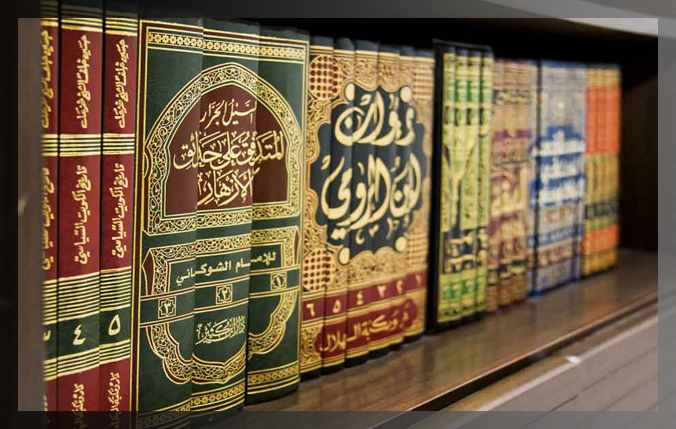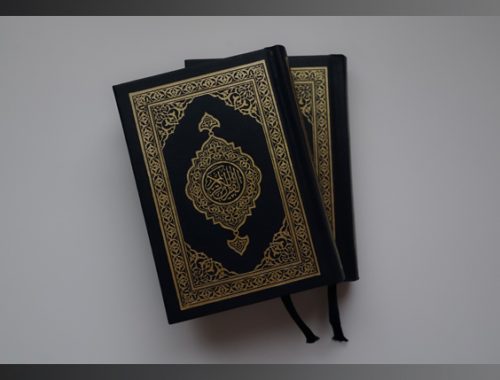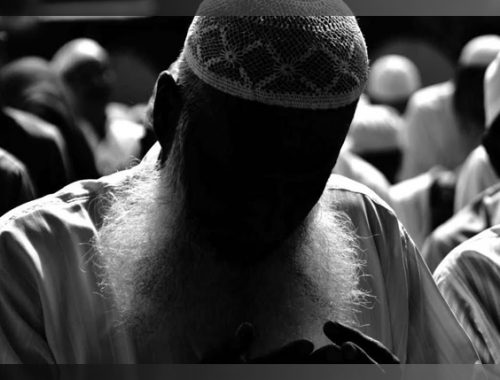
HADITHS JUDGED BY HADITHS
THE HADITHS SHOULD BE DESTROYED ACCORDING TO THE HADITHS THEMSELVES
We have given above instances of hadiths that prohibited the copying of hadiths that announced what was lawful and what was not, that sanctified the Prophet’s acts and actions. We witnessed the existence of hadiths that corroborated the Quran and the hadiths that said that the hadiths should be destroyed altogether. It is interesting to note the existence of a good many hadiths that negate themselves. While a hadith speaks of the Prophet’s banning the sight of one’s calves, another negates it. While there is a hadith that prohibits the consumption of mussels and shrimp,,another negates it. There is a hadith that makes unlawful the wearing of silk or gold by men, there are hadiths that say that the companions of the Prophet did wear silk, and that even the Prophet had once worn a golden ring. There are hadiths which are in favor of the segregation of men and women, while there are also hadiths stating that men and women used to perform ablutions in the same place and that they freely conversed.
The thing to do then should be to consider the Quran a self-sufficient book and avoid all contrived and fabricated explanations. There are hadiths that speak of acts that the Prophet could not possibly be the author of or that he could not have spoken. Yet, by introducing the quotation with the formula ‘The Prophet said,’ the words assume the garb of sanctity. Another point is giving a religious connotation to the areas that God has left to the discretion of man. For example, the Quran has not commanded people to wear a particular uniform but left it to the discretion of man, so a man is free to wear a suit, or a woman a t-shirt. It is quite possible that the Prophet used to wear, according to the customs and fashion of the time, a robe with full sleeves and a long skirt. Yet, the pagans and enemies of the Prophet also wore such robes. This means that his attire had no religious connotation whatsoever, but was something that God had left to the choice of man. The fabricated hadith that described the attire of the Prophet was actually not a hadith but an interpretation of this custom. The following hadith provides an example to illustrate how a fabricated hadith should be corrected based on the Quran.
Know that anyone who sows something against the Quran will reap calamity when the time comes to reap what he sowed. So, sow what is ordained in the Quran and abide by it. Call it to witness in the presence of your Lord, and take Him for your guide. If your opinions clash with what is ordained, blame them, and if your wishes are in conflict with them betray your wishes.
Nahcul Balagha
All the hadiths are but conjectures. According to the Quran, religion cannot be based on suppositions. There is no doubt that any hadith that contradicts the Quran and dares supplement it is most certainly an erroneous supposition. On the other hand, even those that do not clash with the verses of the Quran are still doubtful. So even assuming that they are in perfect conformity with the Quran, they cannot be considered to be one hundred percent the sayings of the Prophet. The reasons behind this were many, like the efforts to make the religion seem attractive to people, the unintentional errors that must have occurred in the chain of transmission, and the mixing of the words of the Prophet and his companions. There is so much evidence that even the best hadith book written two hundred years after the death of the Prophet is but conjecture. Our intention here has been to judge the hadiths of transmitters by their own hadiths. We have no intention to write a new book of hadiths. Islam is equivalent to the Quran. Nothing less, nothing more. The rest is but conjecture and the truths and the untruths have been inextricably mixed.
42 – Do not confuse truth with falsehood, nor conceal the truth knowingly.
2 The Cow, 42
36 – Most of them follow nothing but conjecture. Surely, conjecture is no substitute for the truth. God is fully aware of everything they do. But most of them follow nothing but fancy: truly fancy can be of no avail against truth
10 Jonah, 36
Turn to the First Page of the Article
PAGE 2: COPYING OF HADITHS WAS PROHIBITED BY THE PROPHET
PAGE 3: THE UNIQUE SOURCE OF ISLAM: THE QURAN
You May Also Like

INTRODUCTION
2:56 pm
THE CONCEPT OF SUNNA
10:04 pm

